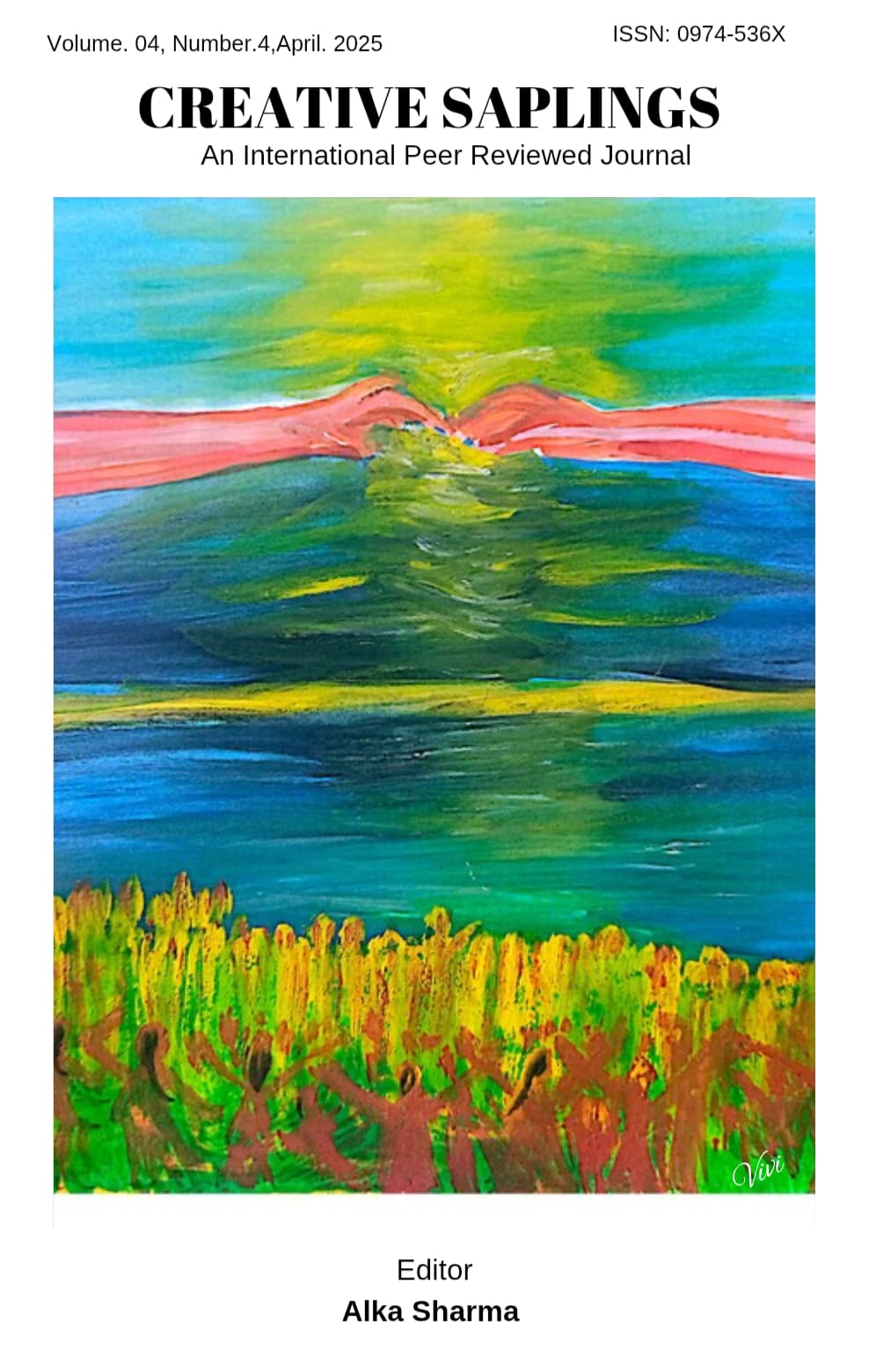The Minimalist Poetics of Ecology: A Study of The Red Turtle
DOI:
https://doi.org/10.56062/gtrs.2025.4.04.925Keywords:
Minimalism, ecology, poetics, symbolism, nature, culture, ontology, particular, universalAbstract
Michael Dudok De Wit's film The Red Turtle is primarily a work of fiction for the modern times which are ravaged by widespread debates and world summits centred around the direction in which the future of humanity on our planet is headed towards. It was made in a minimalist style, with a limited number of characters and no dialogue, hence giving the film a universal scope which is free from linguistic barriers. For this reason, certain symbolic elements that reflect the ecological notions of contemporary times have taken on importance in the narrative. By highlighting these aspects, the narrative further delves into the dichotomy of nature and culture and the intricate links between both which resurface even in the midst of man’s isolation from society on an island. The protagonist’s constant efforts for reinstating himself with society, the visual representation of his dreamscape and the small objects which serve as evidence of human civilization probe into deeper ontological questions of why we constantly strive to reinterpret the surrounding nature with our proper meanings and likewise derive particular categories out of universal abstractions. For the most part, this article analyses the aforementioned questions from the father’s perspective, and the viewer can effectively relate with his turmoil as to having been separated from the society in which he grew up. The subsequent parts of the article present a quasi-hypothetical situation to the viewer by analysing the perspective of his son, a boy who has no knowledge about society per se as he was born and raised on the island. The open ending of the film is the final stage of analysis with which the article has in effect presented a conclusive stance with regard to the ecological concerns of our times during the Anthropocene era.
Downloads
References
Barry, Peter. Beginning Theory: An Introduction to Literary and Cultural Theory. Beginnings, 2017, p. 203-205.
Choudhary, Sania. “An Exploration of Foreign Films: Unique Cinematography and Minimalist Themes Distinguish ‘Tokyo Story.’” The Stanford Daily, 31 July 2020, stanforddaily.com/2020/07/31/an-exploration-of-foreign-films-uniquecinematography-and-minimalist-themes-distinguish-tokyo-story Accessed 12 Mar. 2025.
Deleuze, Gilles. Cinema II: The Time-Image. A&C Black, 2013.
Demaria, Federico, et al. “What Is Degrowth? From an Activist Slogan to a Social Movement.” Environmental Values, vol. 22, no. 2, Mar. 2013, pp. 191–215. https://doi.org/10.3197/096327113x13581561725194.
Gbadegesin, Olusegun. “Destiny, Personality and the Ultimate Reality of Human Existence: A Yoruba Perspective.” Ultimate Reality and Meaning, vol. 7, no. 3, Sept. 1984, pp. 173–188. https://doi.org/10.3138/uram.7.3.173.
Gill, Jerry H. “Wittgenstein and Metaphor.” Philosophy and Phenomenological Research, vol. 40, no. 2, Dec. 1979, p. 272. https://doi.org/10.2307/2106323.
Gurko, Leo. “The Heroic Impulse in ‘The Old Man and The Sea.’” The English Journal, vol. 44, no. 7, Oct. 1955, p. 377. https://doi.org/10.2307/808247.
Jenkins, Mark. “‘The Red Turtle’: An Animated Fable of Humanity, Nature and the Nature of Humanity.” NPR, 19 Jan. 2017, www.npr.org/2017/01/19/510426259/thered-turtle-an-animated-fable-of-humanity-nature-and-the-nature-of-humanity. Accessed 14 Mar. 2025.
“Minimalism | Tate.” Tate, www.tate.org.uk/art/art-terms/m/minimalism. Accessed 12 Mar. 2025.
Prime Video: The Red Turtle. app.primevideo.com/detail?gti=amzn1.dv.gti.59005953-dc21-47e3-a2b3e784311372fb&ref_=atv_dp_share_mv&r=web. Accessed 10 Mar. 2025.
Rangarajan, Swarnalatha. Eco Critcism: Big Ideas and Practical Strategies. 2018.
Sessions, George, and Bill Devall. Deep Ecology: Living as if Nature Mattered. Gibbs Smith, 2001, p. 70.
Shankara.AtmopadesaSatakam.srinarayanagurucompleteworks.blogspot.com/2009/07/atmopadesasatakam.html. Accessed 16 Mar. 2025.
Thoreau, Henry David. Walden; or Life in the Woods. Franklin Classics Trade Press, 2018.
Todorov, Tzvetan. Symbolism and Interpretation. Cornell UP, 1986.
Yaldir, Hulya. “Ibn Sînâ (Avicenna) and René Descartes on the Faculty of Imagination.” British Journal for the History of Philosophy, vol. 17, no. 2, Apr. 2009, pp. 247–78. https://doi.org/10.1080/09608780902761679.
Downloads
Published
Issue
Section
License

This work is licensed under a Creative Commons Attribution-NonCommercial 4.0 International License.





